
In Tanzania, the academic year for primary school runs parallel to the calendar year, starting in January and ending in December. Students enjoy a month-long holiday at the end of the year and return in January to begin a new academic year.
Primary education in Tanzania is the first seven years of school; starting in Standard 1, students graduate from primary school in Standard 7.
The first few weeks of January are usually filled with excitement as students transition to the next academic level and reunite with friends they haven’t seen in a while. We recently caught up with Grace, one of our primary school students, to hear about her recent holiday and her plans for the year ahead.
I enjoyed spending time with my family and playing with my friends.
When we visited my grandmother for Christmas, I met with my cousins and had lots of fun together! We also enjoyed delicious food and drinks.
Yes. I want to study hard so that I can become a soldier one day.
I helped my mum around the kitchen, and she showed me how to prepare some meals.
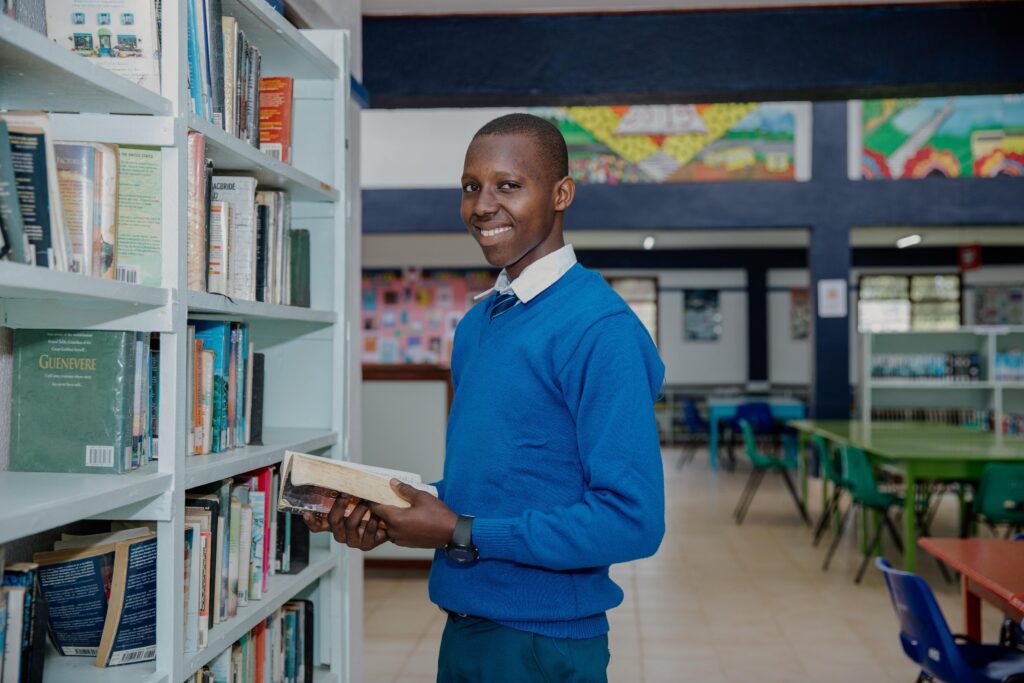
For four straight years, Jordan followed a tight schedule. He started his day at 4am, dedicating the next hour and a half to personal studies. By 6:20am, Jordan was ready to begin the 40-minute walk to school. He would return home around 6:30pm, spending an additional hour and a half after school in group discussions and revisions.
"The government school I attended didn't have enough boarding facilities for all students," explains Jordan. "Nevertheless, I had to do everything I could to pass my national examinations."
In Tanzania, there are two key stages to secondary schooling. The first four years of secondary school are called Ordinary Level (O Level) studies, from Form 1 to Form 4, and the final two years of secondary school are called Advanced Level (A Level), Forms 5 and 6. Students must sit for a series of standardised examinations organised by the government at the end of each stage. Only those that pass may continue onto the next level.
Jordan had to ace his Form 4 national examination to stand a chance of continuing with A Level studies. In 2023, close to 600,000 candidates sat for the exam. With only close to 1,000 A Level schools in the country, a student has to do exceedingly well in the exams to earn a spot in any of these schools.
"Two of my older siblings never made it to A Level," shares Jordan. "I have two younger siblings and my mother back at home. They were all rooting for me because I would be the first one in the family to do so," he adds passionately.
As Jordan approached his national examinations, his mother paid additional accommodation fees so that he could move into a boarding facility close to school. The support from his family and Jordan's hard work eventually paid off. He passed his national examinations with flying colours and was one of the top-performing students at his school!
"It was like a celebration when the results came out," reflects Jordan excitedly. "Everyone was so proud of me and it makes all the effort worth it."
Despite the impressive results, Jordan's path to A Level wasn't guaranteed. The shortage of secondary schools in Tanzania means that not every qualified graduate makes it to the next stage. The only way to get into a government secondary school is through an allocation by the government, which happens several months after the results are announced.
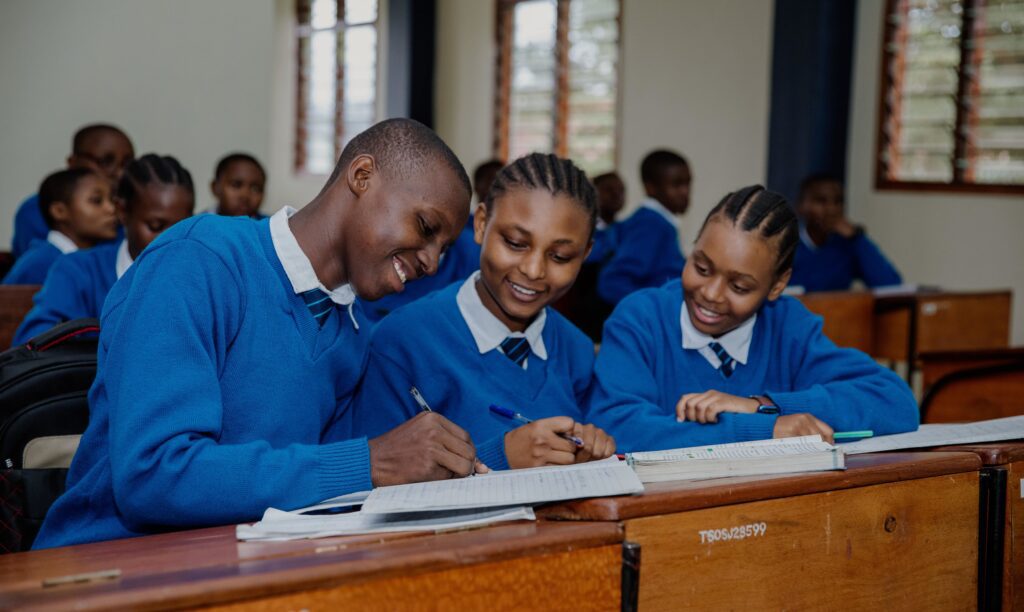
"Missing out on a government school would surely mean the end of the journey for me," says Jordan. "The only other option would be to join a private school, which we couldn't afford. I had done my part, now I had to wait and hope for the best," he adds.
Luckily for Jordan, he didn't need to wait long. His impressive academic results earned him an invitation to apply for an academic scholarship at St Jude's. Jordan jumped at the opportunity. He aced the academic tests and passed the rigorous poverty assessment checks to secure a spot at St Jude's. His strong academic prowess, underprivileged background, and strong character made him an ideal candidate for the scholarship.
"I have only been at St Jude's a few weeks, but it's already made a lasting impression on me. I'm now exploring my curiosity with computers and trying out different activities within the school," says Jordan, who hadn't used a computer before St Jude's.
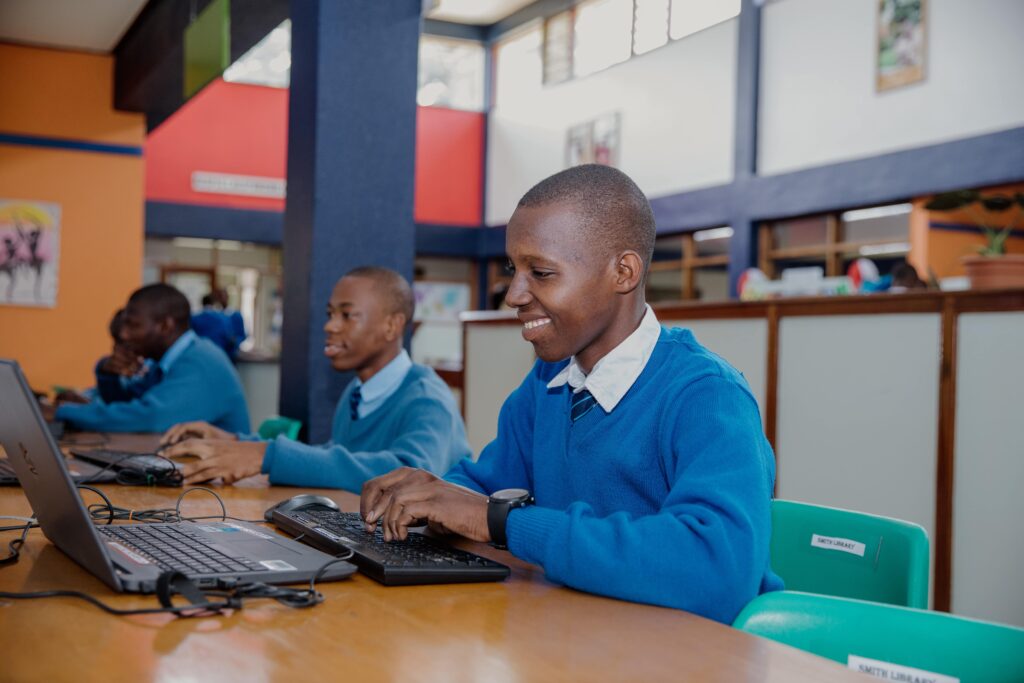
Jordan is pursuing physics, chemistry, and mathematics in his A Level studies and hopes to become an engineer someday. St Jude's holistic approach to education turns motivated students like Jordan into well-rounded individuals. Provided with a quality learning environment, strong academic program, and robust co- and extracurricular activities, students graduate from St Jude's better equipped to lift their families and communities out of poverty. With his hard work and determination, it's thrilling to imagine how much he'll accomplish in his next two years at St Jude's.
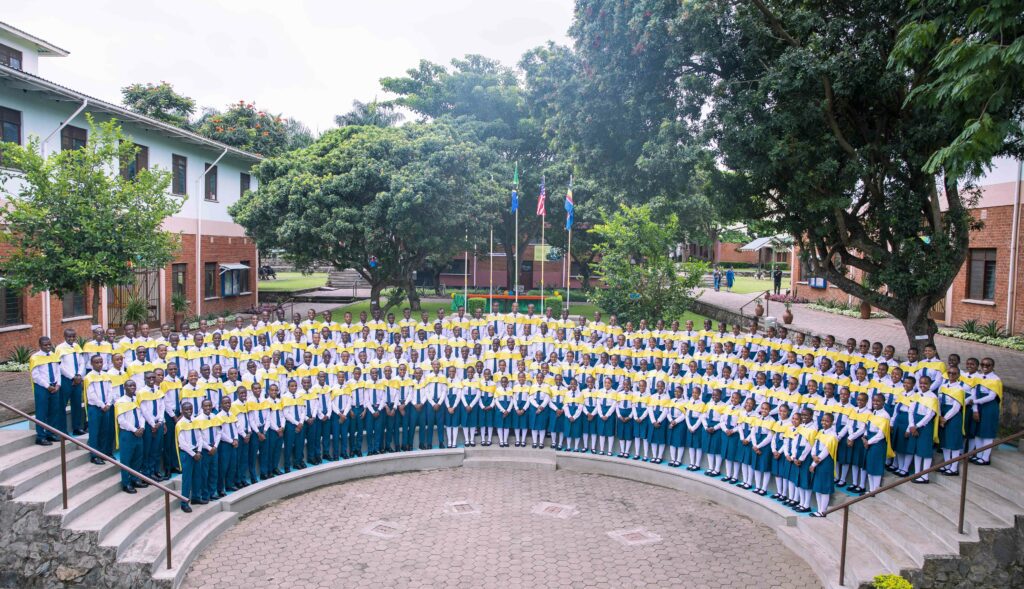
Attending a graduation ceremony at St Jude’s is an experience like no other. It’s a day of pride and celebration, representing years of hard work, dedication, and sacrifice. St Jude’s hosts three graduation ceremonies a year, corresponding to the three main levels of the Tanzanian school system, and a recognition ceremony for its alumni finishing their tertiary education.
The three key stages of school in Tanzania consist of seven years of primary school from Standard 1 to 7, then four years of secondary school from Form 1 to 4 in Ordinary Level (O Level) studies, and finally, the final two years of secondary school, Forms 5 and 6 in Advanced Level (A Level) studies. A graduation ceremony marks the end of each stage as students progress to the next phase of their academic journey.
While each graduation is a memorable occasion, the Form 6 graduation holds a special significance as it marks the transition to higher education in universities and colleges.
“It’s been a wonderful journey, and we leave St Jude’s with lovely memories,” says Andrea, Form 6 graduate, in his farewell speech on graduation day. “The achievements we’ve made demonstrate how exceptional our time here has been,” he adds.
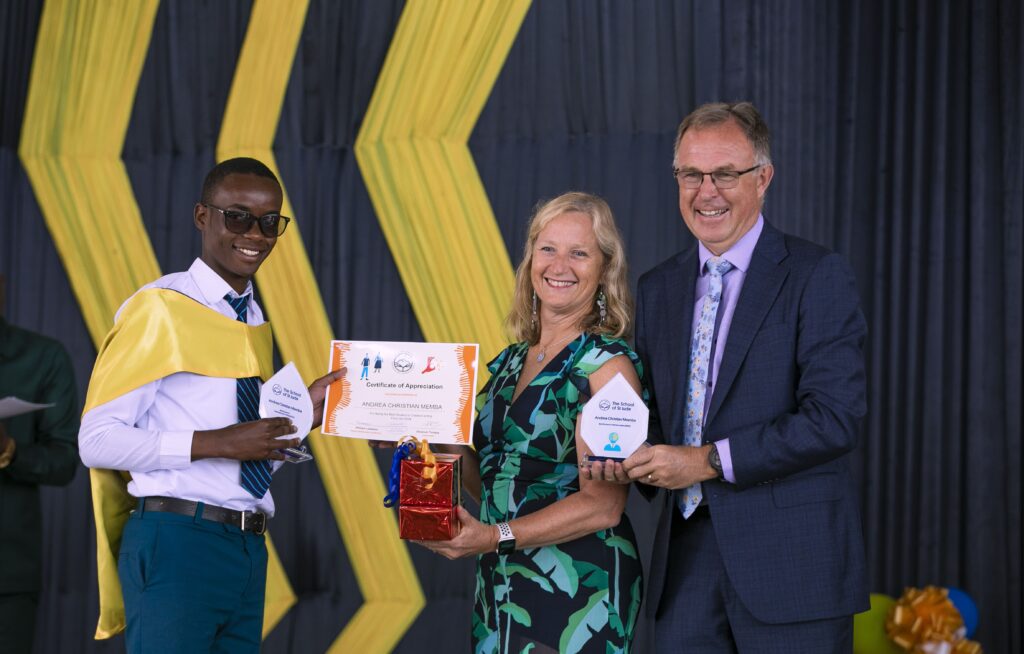
With 200 graduates, the 2024 Form 6 cohort was the second-largest group to graduate from St Jude’s. Their outstanding accomplishments include winning several national and international sports and essay writing competitions, excelling in regional and zonal exams, and pioneering impactful initiatives that are gaining recognition in the greater community.
“We stand here today as a testament to how we’ve fulfilled the school’s mission,” says Andrea. “We hope to achieve even greater things because of what has been invested in us throughout our time at St Jude’s,” he adds.
Completing secondary education is a remarkable achievement for students in Tanzania. However, several socio-economic barriers still hinder many students, particularly females, from completing secondary education. Existing gender disparities in enrolment and high dropout rates mean that only 27% of Tanzanian girls who start A Level, reach Form 6 graduation.
At St Jude's, however, all secondary school students receive 100% free, quality education, which includes safe boarding accommodation, nutritious meals, extracurricular programs, and more. The school’s holistic approach to education and promotion of gender equality ensures girls excel academically and in other areas. As a result, the school consistently maintains a 100% completion rate for all secondary school students.
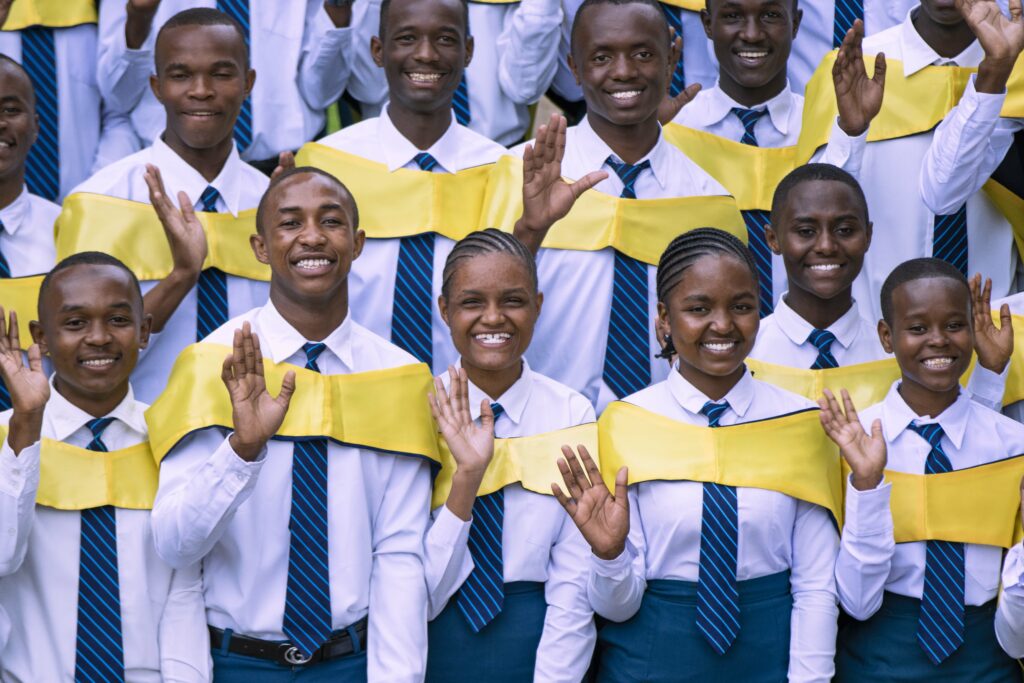
“One of our girls made it to the top 10 of the regional mock examinations, another invented a bean sorting machine that won first place on Science Day, and still another launched an initiative to support government school students with sanitary pads,” Noreen proudly shared at the graduation speech.
The 2024 graduation ceremony was particularly special as it was the 10th Form 6 graduation in St Jude’s history. Fittingly, it recorded the highest number of international visitors in attendance – over 90—in addition to more than 100 local guests, board members, alumni, and government officials. Among them was Mark Cubit, chairperson of the Australian board, Pat Sutliff, from our American Friends of The School of St Jude board, and David Stellar, who helped build the first three classrooms at St Jude’s more than 20 years ago.
“From little things, big things grow. And as you can see all around you, St Jude’s is changing lives as personified by the graduating class,” says David, as he reflects on the 20+ year journey of St Jude’s.
The next step for the graduates is pursuing higher education at various universities and colleges. Most opt to apply to the Beyond St Jude’s Scholarship Program (BSJSP), which supports graduates with tertiary education.
As part of the BSJSP, the selected graduates will undertake Community Service placements, volunteering as teachers in understaffed government schools, or at various placements throughout St Jude's. Then they go on to access higher education supported by St Jude's sponsors and donors.
Whichever path they choose, we know our graduates will personify the school’s vision of an educated community of moral and intellectual leaders, fighting poverty in Tanzania.
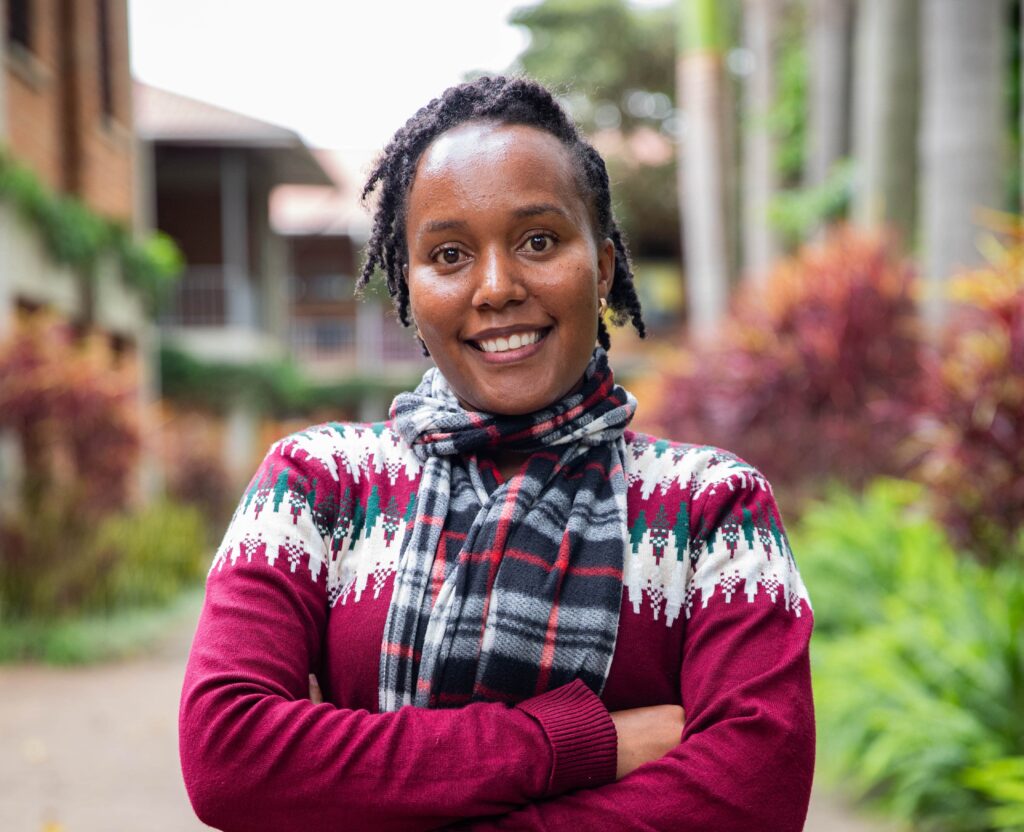
I teach physics and chemistry at St Jude’s Girls’ Secondary School and mentor 40 students in the Science and Innovation Club.
I love sharing my passion for science and inspiring others to explore the wonders of the natural world. As a teacher, I get to see my students achieve their dreams just like I did and that brings me a lot of joy and fulfilment.
I help students bring their creative ideas to life! We have a special focus on solution-based projects that use innovation to tackle challenges within the community. The students are very clever and mentoring them is truly an honour.
We have a few interesting projects. One of the prototypes from the Innovation Club, an automatic stamping machine, won the overall second place at the recent Science Day at St Jude’s. Another one, a clothes-drying machine, won first place in the physics category.
I hope to see more girls getting into STEM-related fields. Technology and innovation have the potential to revolutionise many industries in the future and it would be great to have more females leading that change.
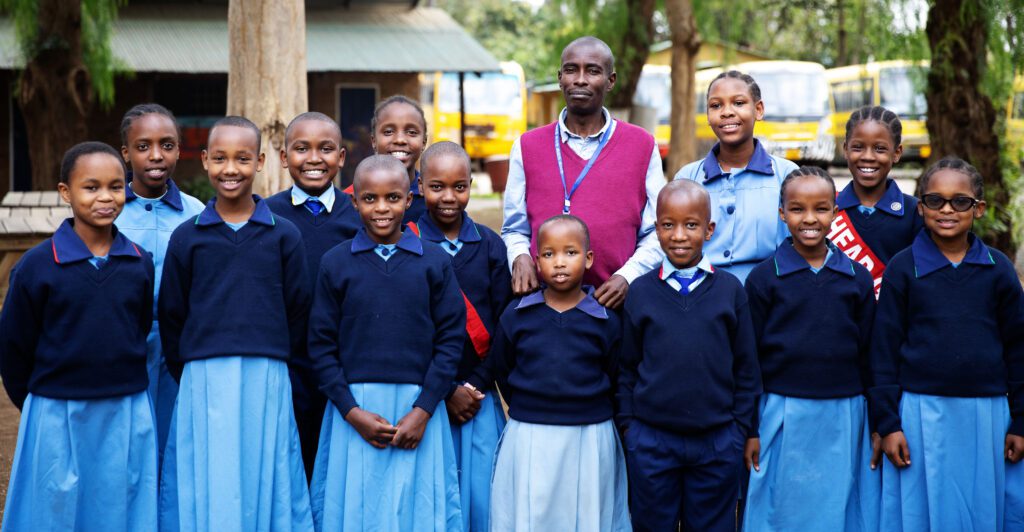
One of the most awaited days at The School of St Jude, Sisia Campus is the Public Speaking Grand Final Competition. Talented members of the public speaking clubs at primary school compete fiercely to get the number one spot.
Tami, a confident Standard 6 student is one of the finalists in this year's competition. "I believe if one expresses his or her thoughts without fear, they can be a source of change for their community," she says.
"I began to realise my talent for public speaking in Standard 4, which provided me with ample opportunities to hone my skills further. During my free hours, I avidly read and learn from influential speakers, leading me to join the Debate Club," reflects Tami.
St Jude’s has been at the forefront of nurturing students' talents through a wide range of skills and activities, including public speaking. Public speaking competitions are typically conducted across all three campuses, allowing students to share their perspectives and expand their horizons.
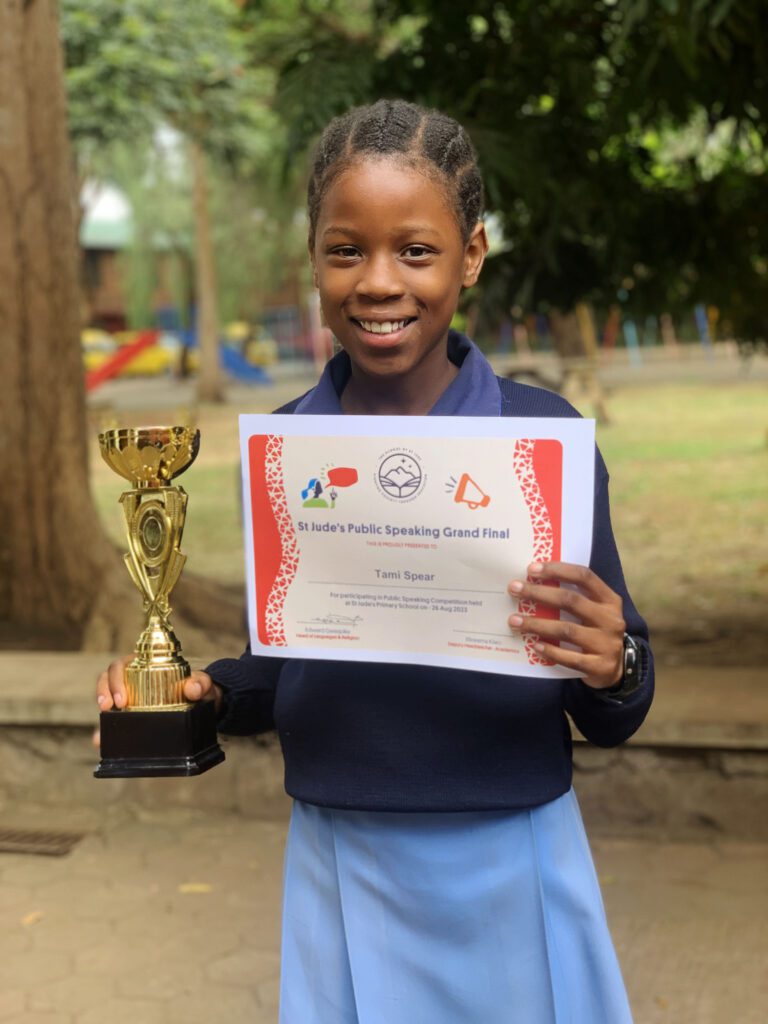
Tami's exceptional speaking abilities have earned her the position of Head Girl at St Jude’s Primary School and the first spot in the public speaking competition.
With aspirations of becoming a teacher, Tami hopes to teach subjects like science, English, and art. She envisions guiding the next generation to seek opportunities, much like her educational experience at St Jude’s, which helped her discover her public speaking talent and will enable her to inspire future generations.
Agape, another competent public speaker at St Jude’s, reflects on her journey, "I never expected to stand in front of people and speak to them without fear."
Agape, who is currently in Standard 3, aspires to become a doctor and recognises the importance of public speaking skills in achieving her dreams. She joined the Public Speaking Club to develop this skill and appreciates the guidance and mentorship of her teachers.
"I love that our teachers at school guide and support us. They give us a chance to bring out our talents," says Agape who came in second to Tami in the competition.
Right from the early stages of primary education, students are encouraged to cultivate their speaking skills in front of their peers. To guide these young minds is Mr Edmund, a teacher at St Jude’s Primary School who is particularly keen on developing students’ public speaking skills. He mentors and coordinates the Public Speaking Club at the primary school.
"In the club, we take pride in having incredibly talented students who consistently bring forth new and creative ideas during our regular meetings and club sessions,” says Mr Edmund.
“Witnessing this young generation's determination to nurture their talents motivates me, and I have no regrets about choosing a career in education," he adds with a smile.
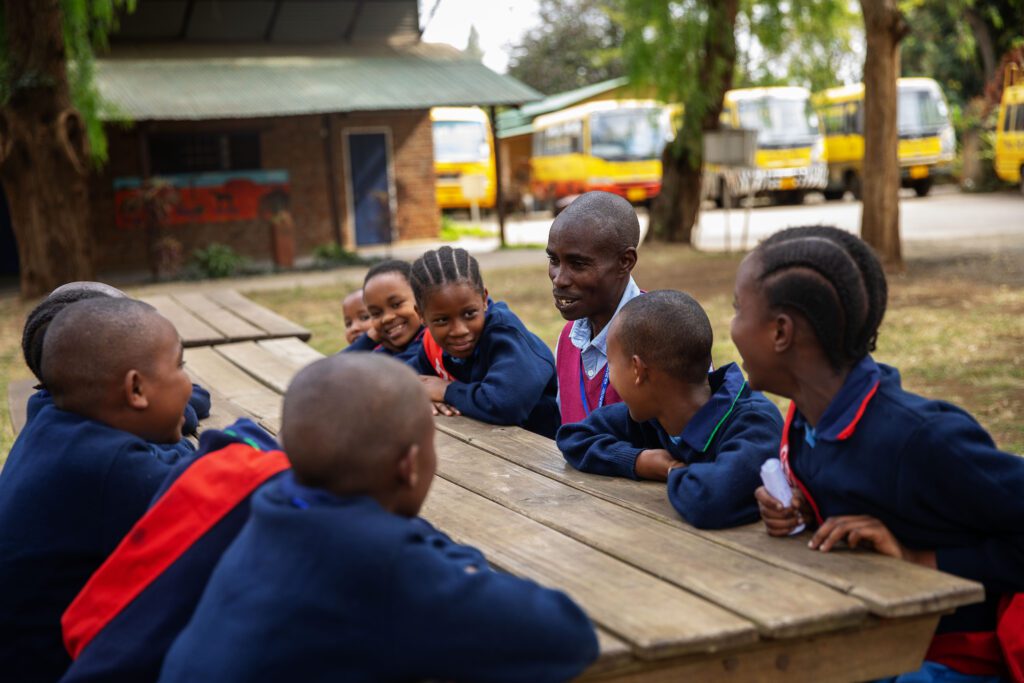
Public speaking is a powerful tool for students to effectively articulate their thoughts and ideas, build confidence and practice leadership. St Jude's remains committed to providing quality education to students like Tami and Agape, the future leaders of Tanzania, eager to bring about positive changes in their communities and make a difference in the world.
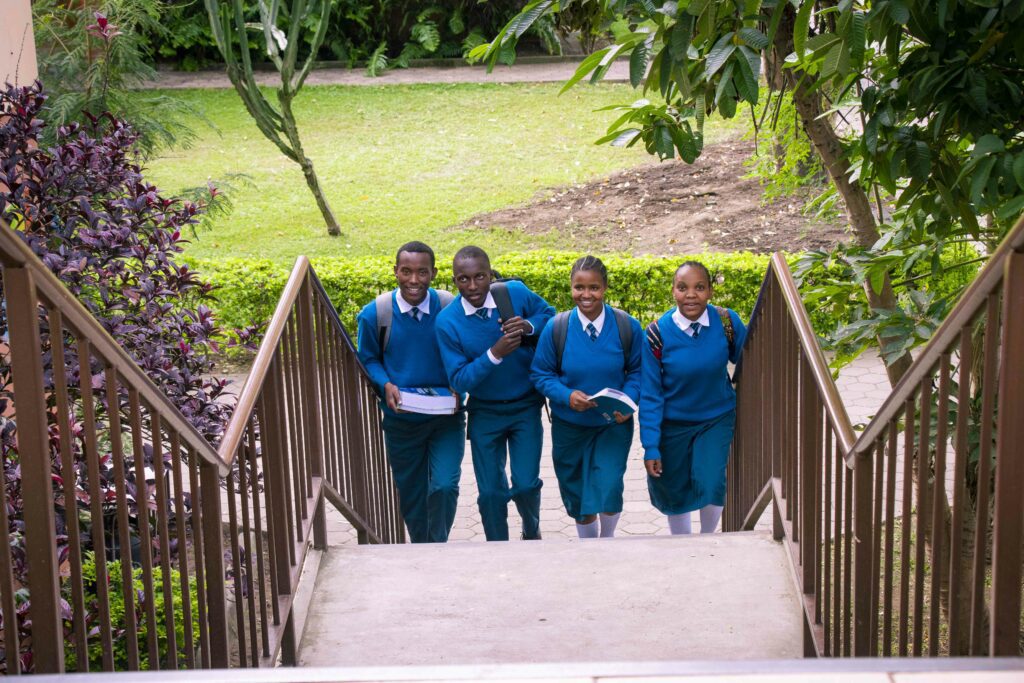
Every July, St Jude’s Secondary School is graced with new students eager to start their A Level studies. Sporting their new, brightly coloured school uniforms and typically walking in clusters, they stand out from their seasoned schoolmates. Among them is Saumu, an ambitious Form 5 student whose dreams and ambitions have found their perfect home at the school.
“Coming to St Jude’s was a dream come true for me,” Saumu says passionately. “I have been hearing good things about the school for many years. So, being here means a lot to me and my family,” she adds excitedly.
In Tanzania, there are two key stages to secondary schooling; the first four years of secondary school are called Ordinary Level (O Level) studies; from Form 1 to Form 4 and the final two years of secondary schooling are called Advanced Level (A Level); from Form 5 and 6.
Every year, St Jude’s awards full academic scholarships to the highest-performing primary and secondary school students from disadvantaged backgrounds through a fair and thorough scholarship application process. Hundreds of potential candidates from government schools across four regions in northern Tanzania are invited to apply for a scholarship at St Jude’s and subsequently go through a series of written and oral examinations and poverty assessments.
“The first time I applied for a scholarship at St Jude’s was in 2019 when I had just completed my primary education,” recalls Saumu. “I was the top performer from my school in the national exams and was pleasantly surprised when I also got invited to apply for a scholarship at St Jude’s!” she adds.
Unfortunately, Saumu didn’t get a scholarship on that occasion. Undeterred by the setback, she worked hard in school and four years later, she was invited again to apply for a scholarship at St Jude’s.
“You don’t always get second chances in life,” reflects Saumu. “So, when I came in for my second attempt, I gave it my all and passed through all the stages!” she adds excitedly.
Saumu is among 66 students who joined St Jude’s Secondary School for the first time in July. She is still adapting to her new school and has so far joined a public speaking club, and is excited to improve her English with the English as a Second Language (ESL) program at St Jude’s.
“Coming to a new school like this can be an overwhelming experience,” says Mr Elia, a teacher at St Jude’s Secondary School. “So, we have a system that guides and helps new students settle in and cope with the environment,” he adds.
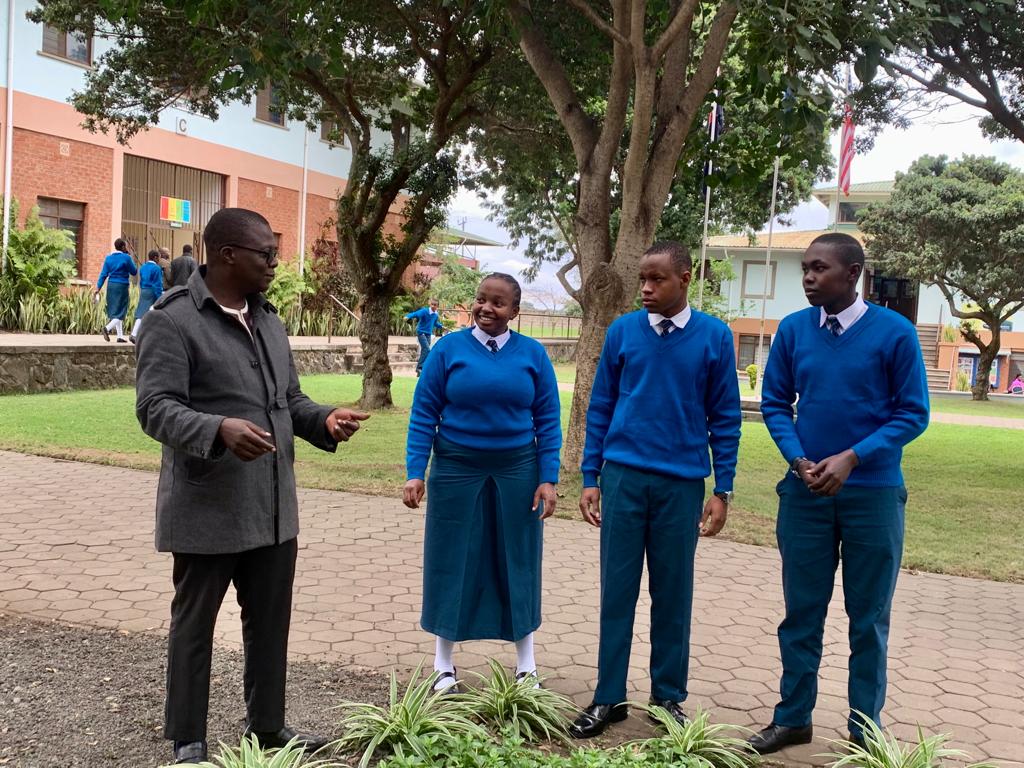
Mr Elia is the Level Coordinator of Form 5. In this role, he looks after all aspects of the class; from academics to non-academics, to discipline matters, and how they cope in the new environment.
“Soon after reporting to school, we organise a one-week orientation for all students joining our campus,” says Mr Elia. “During this week, we introduce them to the entire school leadership structure, including teachers and student leaders. We also show them around the school and all the important places,” he adds.
The supportive environment at St Jude’s coupled with the school’s huge resources helps new students settle in quickly. In only a matter of a few months, most students would have already found their favourite sport, extra-curricular activity, and favourite subjects.
A good example of this is Nuhu, a Form 1 student who joined St Jude’s from a government school in January this year. In just a few months, he is now one of the top performers in his class, has secured a starting spot on his class football team and performed in a cultural competition earlier this year!
“When I first came in, I was blown away at how big the school was,” says Nuhu. “I thought it was going to take me a year to find my way around!” he adds with a smile.
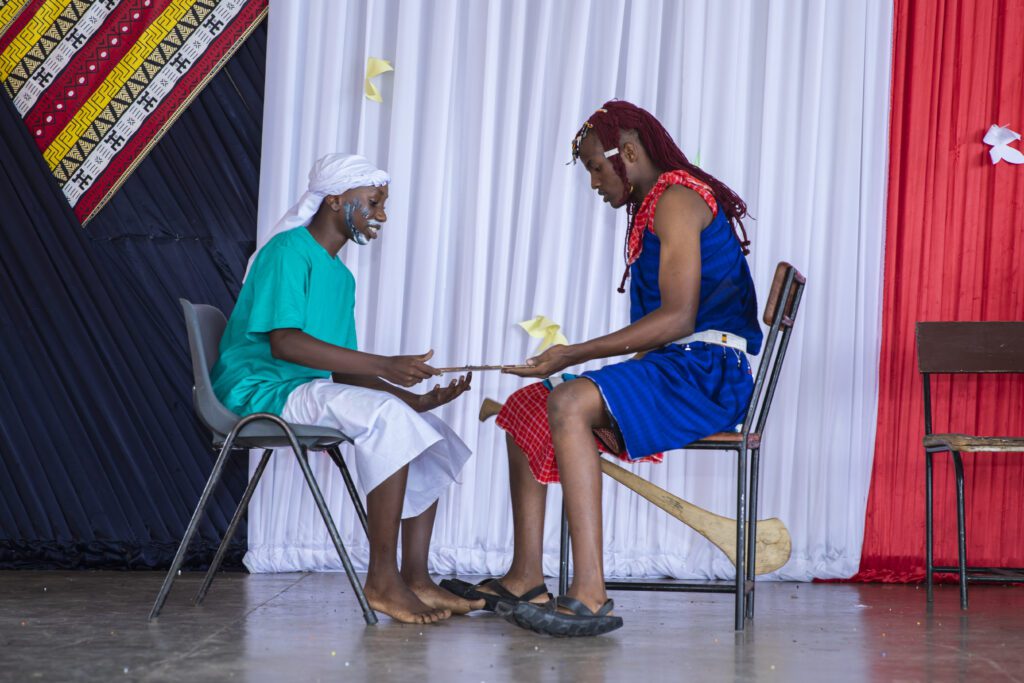
Both Nuhu and Saumu are the first members of their family to reach secondary school. Prior to getting a scholarship at St Jude’s, they were both at risk of not continuing with advanced secondary education due to cost demands. With a scholarship at St Jude’s, their future is now secured thanks to the generous donations of sponsors around the world.